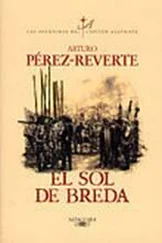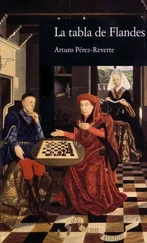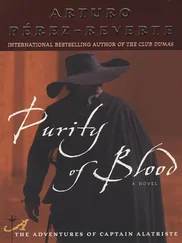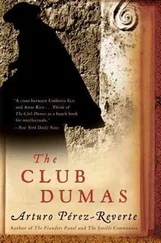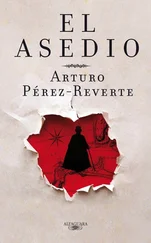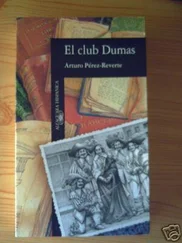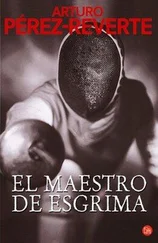Arturo Pérez-Reverte - The Sun Over Breda
Здесь есть возможность читать онлайн «Arturo Pérez-Reverte - The Sun Over Breda» весь текст электронной книги совершенно бесплатно (целиком полную версию без сокращений). В некоторых случаях можно слушать аудио, скачать через торрент в формате fb2 и присутствует краткое содержание. Жанр: Старинная литература, на английском языке. Описание произведения, (предисловие) а так же отзывы посетителей доступны на портале библиотеки ЛибКат.
- Название:The Sun Over Breda
- Автор:
- Жанр:
- Год:неизвестен
- ISBN:нет данных
- Рейтинг книги:5 / 5. Голосов: 1
-
Избранное:Добавить в избранное
- Отзывы:
-
Ваша оценка:
- 100
- 1
- 2
- 3
- 4
- 5
The Sun Over Breda: краткое содержание, описание и аннотация
Предлагаем к чтению аннотацию, описание, краткое содержание или предисловие (зависит от того, что написал сам автор книги «The Sun Over Breda»). Если вы не нашли необходимую информацию о книге — напишите в комментариях, мы постараемся отыскать её.
The Sun Over Breda — читать онлайн бесплатно полную книгу (весь текст) целиком
Ниже представлен текст книги, разбитый по страницам. Система сохранения места последней прочитанной страницы, позволяет с удобством читать онлайн бесплатно книгу «The Sun Over Breda», без необходимости каждый раз заново искать на чём Вы остановились. Поставьте закладку, и сможете в любой момент перейти на страницу, на которой закончили чтение.
Интервал:
Закладка:
“Better so.”
Garrote had looked up, piqued by that “no one.” He was a thin, dark-skinned rough-and-tumble type with a sparse beard that curled like those of the Turks he had fought against while in the galleys of Naples and Sicily. His hair was long and greasy, and he wore a gold earring in his left ear. There was none in the right because, according to him, a Turk’s scimitar had sliced off the lobe while Garrote was on the island of Cyprus, though others attributed the loss to a certain knife fight in a whorehouse in Ragusa.
“But,” he broke in, “I do have something to say to señor Capitán Bragado. Three things. One is that it is all the same to the son of my mother whether we walk two leagues in the rain with Hollanders, with Turks, or with their whoring mothers…”
He spoke firmly, adamantly, verging on impertinence, and his companions watched with expectation, some with visible approval. They were all veterans, and obedience to the military hierarchy was natural, but so was arrogance, for their status as soldiers also made them all hidalgos. The tradition of discipline, the bone and sinew of the old tercios , had been recognized even by an Englishman, a certain Gascoigne, when writing about the Spanish Fury and his account of the sacking of Antwerp. He had said, “The Walloons and the Germans are as undisciplined as the Spanish are admirable for their discipline.” Which is no small recognition from an English author when he is speaking of Spaniards. As for arrogance, it is not wasted time to recount the opinion of don Francisco de Valdez, who had been a captain, a sergeant-major, and then a colonel, and who therefore knew a spade for a spade, when he affirmed in his Espejo y disciplina militar that “nearly always they abhor to be bound to order, particularly the Spanish infantryman, who, being more choleric than others, has little patience.” These men were nothing like the deliberate and phlegmatic Flemish, who, though avaricious in the extreme, did not lie or fly into a rage but proceeded with great calm. The courage and fortitude of the Spaniards in Flanders, which along with their conduct in adversity forged the miracle of iron discipline on the field of battle, also made them less than gentle in other circumstances, such as dealing with their superiors, who had to move cautiously and with great tact. It was not a rare occurrence, despite the threat of the gallows, for a simple soldier to knife a sergeant or a captain over real or supposed offenses, embarrassing punishment, even a word out of place.
Knowing all this, Bragado turned to Diego Alatriste, as if to ask, wordlessly, his judgment of the situation, but he was met only with an impassive face. Alatriste was a person who let each man assume responsibility for what he said and what he did.
“You spoke of three things,” said Bragado, turning again to Garrote with a great amount of calm but even more menacing sangfroid. “What are the other two?”
“It has been a long time since any cloth has come our way, and we are wearing rags,” the Malagüeño continued, entirely unintimidated. “No provender reaches us, and since sacking is forbidden, we are reduced to near starvation. These vile Hollanders hide their best victuals, and when they don’t, they ask for gold in exchange.” He pointed with rancor toward their host, who was watching from the other room. “I am sure that if we could tickle his ribs with a dagger, that dog would somehow discover a full pantry or a buried pot filled with nice, shiny florins.”
Captain Bragado was listening patiently; he still appeared to be calm but had not taken his hand from the hilt of his Toledo steel.
“And the third?”
Garrote raised his tone slightly, just enough to express arrogance without overdoing it. He knew that Bragado was not a man to tolerate a word meant to best him, not from his veteran soldiers…not even from the pope. But from the king? Well, he had no choice but to accept that.
“The third and principal item, Capitán, is that these good soldiers, who with good reason you address as Your Mercies, have not collected pay in five months.”
This time quiet murmurs of agreement ran around the table. Only the Aragonese Copons said nothing; he was staring at the crust of bread he had been crumbling into his bowl and then scooping out with his fingers. The captain turned to Diego Alatriste, still at his place by the window. Alatriste’s lips did not move, and he held Bragado’s gaze.
“And do you stand by that, Capitán?” Bragado asked him gruffly.
Alatriste shrugged his shoulders, his expression inscrutable. “I stand by what I say,” he stated. “And at times I stand by what my comrades do, but at the moment, I have said nothing, and they have done nothing.”
“But this soldier has gifted us with his opinion.”
“Opinions belong to those who hold them.”
“And that is why you have nothing to say and why you are looking at me in that way, señor Alatriste?”
“That is why I have nothing to say and why, Capitán, I am looking at you.”
Bragado studied him carefully and then slowly acquiesced. The two knew each other well, and in addition, the officer had good judgment when it came to distinguishing between firmness and affront. After a moment he withdrew his hand from his sword and touched his chin, but as he glanced at the men around the table, the hand returned to the hilt of his sword.
“No one has collected his pay,” he said finally, and he seemed to be speaking to Alatriste, as if it had been he and not Garrote who had spoken, as if he were the one who merited an answer. “Not Your Mercies, nor I myself. Not our colonel, nor even General Spínola. Withal that don Ambrosio is Genoese and from a family of bankers!”
Diego Alatriste listened in silence and said nothing. His gray-green eyes were still locked with those of the officer. Bragado had not served in Flanders before the Twelve Year’s Truce, but Alatriste had, and during that time mutinies had been the order of the day. Both knew that Alatriste had more than once experienced mutiny at close hand, when the troops had refused to fight after months, even years, of not collecting their wages. He had never, however, counted himself among the insurgents, not even when the precarious financial situation of Spain had institutionalized mutiny as the one means by which troops obtained their due. The other alternative was sacking, as in Rome and Antwerp:
I have come here without food but should I request a morsel I am shown a thousand Dutchmen and an impregnable castle.
Nonetheless, in that campaign, except in the case of places taken by attack or in the heat of action, it had been General Spínola’s policy not to inflict excessive violence upon the civilian population, so as not to exacerbate their already exhausted sympathies. Breda, should it fall, would not be sacked, and the fatigue of those who besieged it would not be rewarded. Therefore, facing the prospect of no booty and no pay, the soldiers were beginning to wear long faces and to huddle in corners and whisper. Even a dolt could read the signs.
“Furthermore, as far as I am aware,” Bragado continued, “only soldiers of other nations claim their pay before they fight.”
That, too, was very true. With no money to be had, reputation was all we had left, and it is well known that within the Spanish tercios it was a point of honor neither to demand back pay nor to mutiny before a battle, so that no one could say we had acted out of fear. Even on the dunes of Nieuport and in Alost, troops who were already rebelling suspended their demands and charged into combat. Unlike the Swiss, Italians, English, and Germans, who often asked for unpaid wages as a condition for their service, Spanish soldiers mutinied only after victory.
Читать дальшеИнтервал:
Закладка:
Похожие книги на «The Sun Over Breda»
Представляем Вашему вниманию похожие книги на «The Sun Over Breda» списком для выбора. Мы отобрали схожую по названию и смыслу литературу в надежде предоставить читателям больше вариантов отыскать новые, интересные, ещё непрочитанные произведения.
Обсуждение, отзывы о книге «The Sun Over Breda» и просто собственные мнения читателей. Оставьте ваши комментарии, напишите, что Вы думаете о произведении, его смысле или главных героях. Укажите что конкретно понравилось, а что нет, и почему Вы так считаете.

